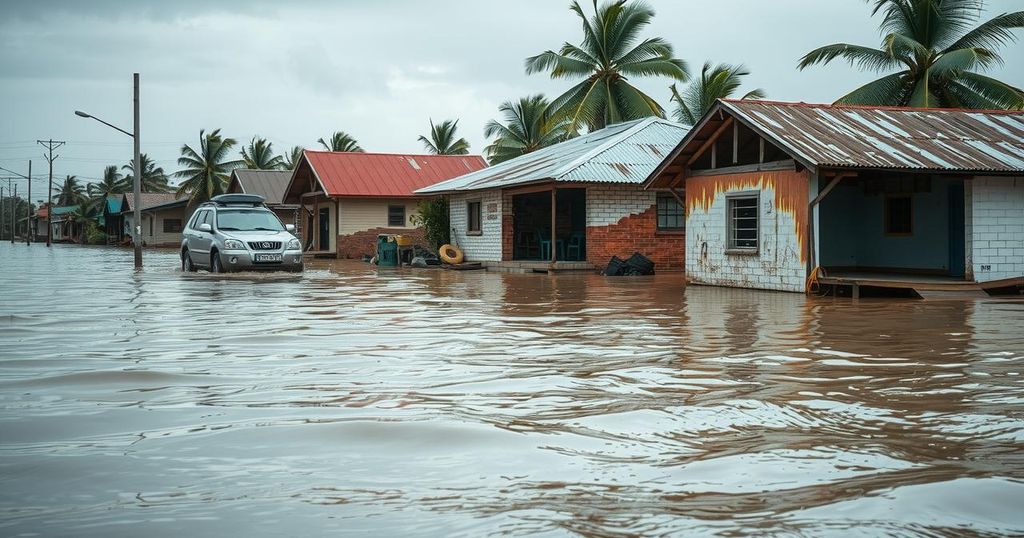Cyclone Chido Claims 94 Lives in Mozambique Amid Political Turmoil
Cyclone Chido has resulted in a rising death toll of 94 in Mozambique, significantly impacting Cabo Delgado province with severe winds and rainfall. Approximately 620,000 individuals have been affected, and the cyclone’s intensity is connected to human-driven climate change. The nation is also dealing with political unrest following recent elections, making recovery efforts even more urgent.
The death toll from Cyclone Chido in Mozambique has tragically risen to 94, as reported by the national disaster management agency. The cyclone made landfall one week ago, causing severe destruction primarily in the northeastern region of Cabo Delgado, which experienced wind gusts of approximately 260 kilometers (160 miles) per hour and relentless rainfall that reached 250 millimeters (10 inches) in just 24 hours. Approximately 620,000 Mozambicans have suffered due to the cyclone, with over 500,000 directly impacted in Cabo Delgado alone.
Cyclone Chido’s devastating impact is exacerbated by the ongoing effects of climate change driven by human activity, which has intensified the strength and reach of such storms. The region of Cabo Delgado has been frequently battered by tropical storms while simultaneously grappling with societal unrest attributed to a protracted Islamist insurgency.
The aftermath of Cyclone Chido compounds the challenges facing Mozambique, which is still recovering from political turmoil related to post-election violence that resulted in the deaths of at least 130 individuals. During a recent visit to the affected areas, Daniel Chapo, the presidential candidate from the ruling Frelimo party, urged the public to assist cyclone victims by donating food and clothing, stating that “even if we are using them, our brothers need them.” This call to action emphasizes the need for national solidarity in the wake of this disaster.
In conclusion, Cyclone Chido has wrought significant devastation in Mozambique, particularly in Cabo Delgado, highlighting both the immediate human toll and the long-standing issues the nation faces, including political unrest and climate vulnerability. Urgent support and humanitarian aid are essential as the region works to recover and rebuild.
Cyclone Chido has emerged as one of the most potent storms to impact Mozambique in recent history, underscoring the vulnerabilities faced by the nation in the wake of climate change and compounded by social and political unrest. Mozambique, particularly Cabo Delgado, has frequently experienced severe weather events, but the combination with political instability exacerbates the humanitarian crisis resulting from such natural disasters. The situation demands immediate attention and support from both national and international communities to address the urgent needs of the affected population.
In summary, the rising death toll from Cyclone Chido and the overwhelming number of affected individuals highlight the severe ramifications of climate change on vulnerable regions like Mozambique. Ongoing political tensions further complicate humanitarian efforts, necessitating a coordinated response to aid victims and address the root causes of instability. The call for donations by political leaders reflects an urgent need for national unity in the face of adversity.
Original Source: www.dw.com




Post Comment